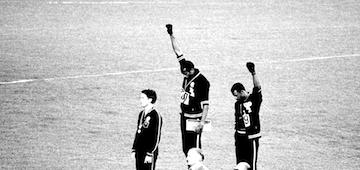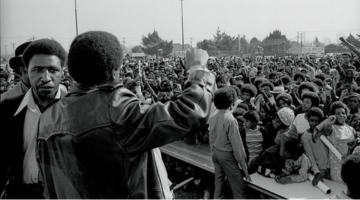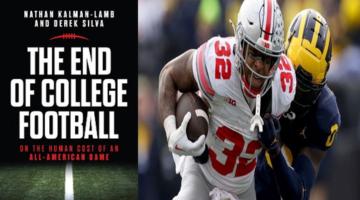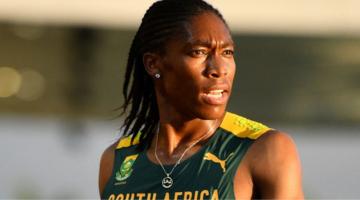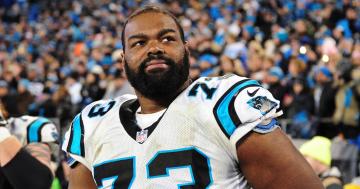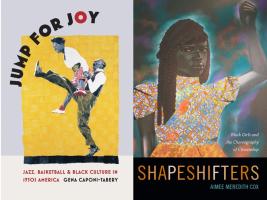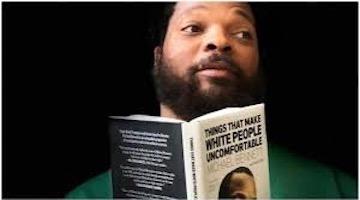In this series, we ask acclaimed authors to answer five questions about their book. This week’s featured authors are Jessica Luther and Kavitha A. Davidson. Luther is a freelance journalist whose work has appeared in Sports Illustrated, ESPN The Magazine, the New York Times Magazine, Texas Monthly, Huffington Post, BuzzFeed, and Vice Sports, among others. Davidson is a sportswriter and host of The Lead, an in-depth daily sports news podcast produced by The Athletic. She is on the board of directors at the Yogi Berra Museum and Learning Center. Their book is Loving Sports When They Don't Love You Back: Dilemmas of the Modern Fan.
Roberto Sirvent: How can your book help BAR readers understand the current political and social climate?
Jessica Luther and Kavitha A. Davidson: First and foremost, the book reinforces that sports are and always have been political, and that the political and social always intersect. While the book was written before COVID and the activism after the murder of George Floyd, many of the themes that we explore are as relevant as ever, including athletes using their platforms to speak out against issues and/or literally organizing and why it’s so hard for people to change their behaviors or stances on issues. The book hits at the core of how sports are fundamentally part of our individual identities. When you try to challenge anything in sports, it feels like a personal challenge to the core of one’s identity. But we also address how these issues are systemic and bigger than any individual. This book is about capitalism, racism, misogyny, and the many ways American industry upholds and recreates power imbalances. Sports often presents an exaggerated version of these problems, but the way these problems manifest in sports mirror how they occur in every other aspect of American life.
What do you hope activists and community organizers will take away from reading your book?
We are not activists and organizers ourselves, but journalists. In putting this book together, we spoke to activists and organizers who are trying to change these systems within sports. This includes athletes themselves like WNBA players and Olympians, Native and Indigenous organizers, economists, an expert on concussions, academics who force us to question the status quo in sports, and fans, consumers, and members of sports media pushing back. Through talking to them, we documented the way that collective action can bring about meaningful change even in a conservative space like sports often is. We heard from many readers that before picking up Loving Sports, they believed themselves to be alone in caring about the issues we address in the book, but now realize that these are concerns shared by others. As disheartening as the inertia of the status quo can be, we hope that activists and organizers who read this book will be reminded that their work matters even when change is incremental.
We know readers will learn a lot from your book, but what do you hope readers will un-learn? In other words, is there a particular ideology you’re hoping to dismantle?
Though we did not set out for this to be a pro-labor book, once it was fully drafted, we realized that it was a theme running through most of the chapters. So, if there was one particular thing we would like people to take away from reading this, it is that athletes are humans and workers. Too often they are portrayed as gods or superheroes, some sort of mythical creatures who only exist for our entertainment. Not only are they humans with emotions but they also have flaws. They are individuals working within the same oppressive systems as the rest of us. While a lot of them are millionaires, they are still not the management class in their industry. Many have power in their individual voices and in collective action (especially those in unions), but they are not in positions of power. While sports are entertainment for us as fans and can present moral dilemmas that we have to navigate, for the athletes this is their job and presents tangible dilemmas where they have to balance considerations around their health, their finances, and their families.
Who are the intellectual heroes that inspire your work?
Honestly, the athletes of the United States women’s national soccer team and in the WNBA who have long forced us to look at sports through a political lens. Being a woman athlete is a radical act in itself in a sports world built by and for men. We are often inspired by how they have discussed many of the issues we address in Loving Sports. As for writers and intellectuals, we have learned from many. Dr. Harry Edwards has for decades written and talked about how racism and white supremacy cannot be separated from American sports. Soraya McDonald is a cultural critic who examines how various aspects of pop culture hold a mirror up to ourselves. Jules Boykoff has pulled back the curtain on how mega events are often harmful to the communities in which they take place. And Dave Zirin, who is a white sportswriter who has shown how to talk about these issues without centering his own experience and has provided a model for allyship in this work.
In what way does your book help us imagine new worlds?
The whole reason we wrote the book is that we saw that sports media catered to one type of fan but we imagine a world where sports embraces all kinds of fans who think about sports in all kinds of ways. The point of writing Loving Sports was to show that we deeply love what is at the core of sports but that it is not currently good enough, that it can be different, more inclusive, better. We have to believe another version of sports is possible, one where they can live up to their ideals and promise, which is the purpose of our work. We hope our readers can imagine this world with us.
Roberto Sirvent is editor of the Black Agenda Report Book Forum.

